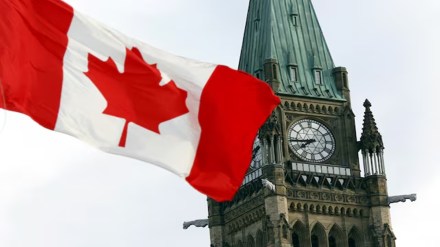In a concerning trend for thousands of Indian students, nearly three out of four study permit applications to Canada were rejected this August, according to official immigration data. 74% of Indian applicants were denied visas in August 2025, compared to just 32% in August 2023, Reuters reported.
The overall rejection rate across all nationalities stood at 40%, while only 24% of Chinese applicants faced rejection.
74% of Indian students denied Canada study permits in August
The total number of Indian applicants has fallen to just 4,515 in August 2025, compared to 20,900 in August 2023. India, which had been Canada’s top source of international students for nearly a decade, now also holds the highest refusal rate among all countries with more than 1,000 approved applicants.
The sudden spike in refusals comes at a time when India and Canada’s diplomatic ties remain strained. The relationship soured after former Canadian Prime Minister Justin Trudeau alleged India’s involvement in the 2023 killing of a Sikh separatist leader, a claim that New Delhi has strongly rejected.
Since then, the impact of fallout could be seen on trade, visas, and education. The increase in student visa refusals appears to be the latest casualty of this ongoing tension. The data follows the Canadian government’s decision to cut the number of international student permits for the second consecutive year, as part of an effort to control temporary migration and fraudulent activities.
Why is Canada rejecting Indian applicants?
According to the Canadian authorities, the tougher visa stance is a result of concerning fraudulent activities in the country. In 2023, officials uncovered around 1,550 fake study permit applications that used forged letters of acceptance. According to Reuters, most of those applications were from India.
The enhanced government verification systems had flagged over 14,000 potentially fake acceptance letters across all applications. As a result, the immigration department has imposed a stricter document verification process and raised financial requirements for international students to ensure only genuine applicants are accepted.
Responding to concerns, the Indian Embassy in Ottawa said it was aware of the growing rejection rate but added that Indian students bring value to Canadian institutions. “We would like to emphasize that some of the best quality students available in the world are from India, and Canadian institutions have in the past greatly benefited from the talent and academic excellence of these students,” the embassy said in a statement.
“Some of the best quality students available in the world are from India,” the embassy said. “Canadian institutions have greatly benefited from their talent and academic excellence.”
Canada’s Foreign Affairs Minister Anita Anand told Reuters that while Canada remains committed to maintaining the integrity of its immigration system, it also wants Indian students to continue studying in the country.
The fallout is already visible in Canadian campuses. At the University of Waterloo, the number of Indian students in both undergraduate and graduate programs has dropped by nearly two-thirds over the last three to four years.Similar trends have been reported at the University of Regina and the University of Saskatchewan.
